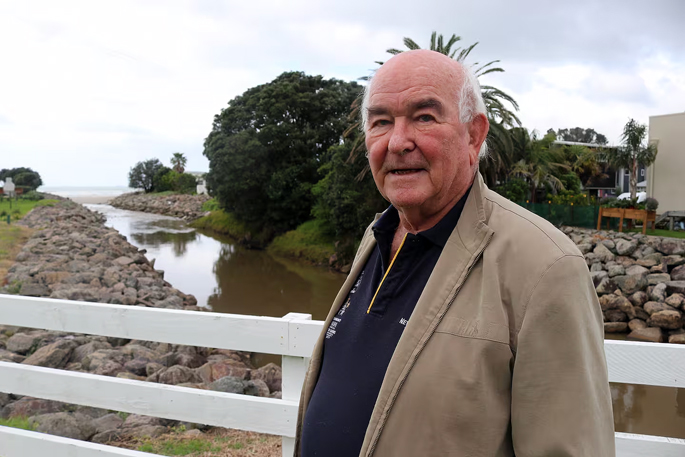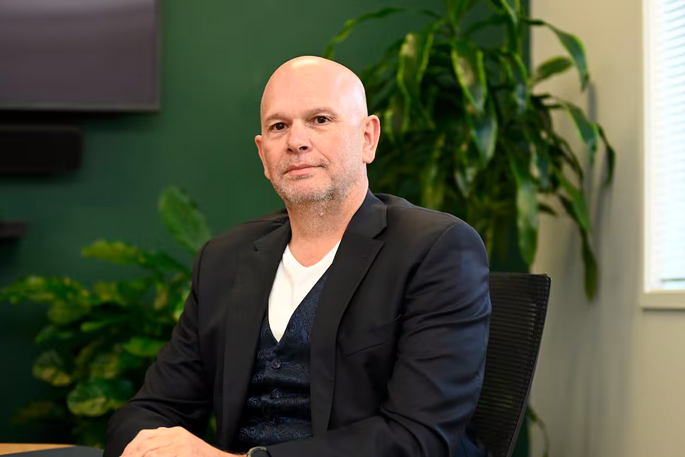A death and a trio of resignations within months have left a medium-sized council’s community facing up to $83,600 in byelection bills to fill the empty seats.
Western Bay of Plenty District Council is considering the future of its community boards – where the three resignations happened – as part of a six-yearly review of its democratic representation arrangements.
On March 31, councillor Richard Crawford died after suffering a heart attack and on April 17, Ōmokoroa Community Board member Greig Neilson resigned from his role with immediate effect – prompting the two current byelections.
These followed the August 2023 resignations of Anish Paudel from the Te Puke Community Board and Alan Kurtovich from the Waihī Beach Community Board.
The district, which wraps around Tauranga City, has a population of about 51,300, according to the council.
Council chief executive John Holyoake says the costs of the two current byelections will be between $16,255 and $67,646, depending on whether the seats are uncontested.
The cost of the Te Puke byelection is $2173 and, for Waihī Beach, $13,790.
Holyoake says byelection costs vary.
“For example, if only one nomination is received then that person is elected and no voting process is required. The costs of a byelection are higher where more than one candidate means an election must be held.”
In recent weeks, the council sought informal community feedback about how they wanted to be represented “including how many councillors we should have, what the boundaries of wards should be and whether community boards should be retained”, says Holyoake.
Western Bay has a mayor, elected by the whole district, and 11 councillors; three represent the Katikati-Waihī Beach Ward; four represent the Kaimai Ward and four represent the Maketū-Te Puke Ward. The council also has five community boards, each with four members and two councillors representing Waihī Beach, Katikati, Ōmokoroa, Te Puke, and Maketū.
A proposal is expected in July for formal consultation.
“Ultimately, if community consultation supports community boards continuing, then the costs associated with a byelection continues to be borne by ratepayers,” says Holyoake.
Neilson tells the Bay of Plenty Times his resignation was due to solo parenthood and rising inflation costs.
 Former Western Bay of Plenty Ōmokoroa Community Board member Greig Neilson, second from left, along with the rest of the board (L-R) Cr Murray Grainger, Peter Presland, Allan Hughes, Ben Bell and Cr Don Thwaites.
Former Western Bay of Plenty Ōmokoroa Community Board member Greig Neilson, second from left, along with the rest of the board (L-R) Cr Murray Grainger, Peter Presland, Allan Hughes, Ben Bell and Cr Don Thwaites.
“Being on a community board doesn’t take up a lot of time but, what I’ve come to realise is, there’s a lot of things going on in your head. You have to be across everything and pay attention to what the community issues are, and talk to people – all of that stuff. That comes at the expense of other things.”
Neilson says he struggled to juggle his work running local school bus networks and growing his web design business with costs rising.
While the council “exceeded expectations” in informing and supporting newly elected members, Neilson’s situation was a result of a “brutal” cost situation, he says.
The Remuneration Authority sets the salary for a Ōmokoroa Community Board member at $4053. The district’s mayor receives $136,500, deputy mayor $60,900 and councillors $40,724.
Kurtovich tells the Bay of Plenty Times he quit because of the council’s 9-3 vote to establish Māori wards for the 2025 and 2028 elections.
“I think you have to take a stand on some things. This is what I think is doing the best thing for the community,” he says.
Asked whether triggering a byelection costing thousands is doing the best thing for the community, Kurtovich says: “Absolutely.”
“If I don’t stand up for my belief, I’m not doing what I should do for the community. And this, I feel, is the right decision for me.”
 Katikati Waihi Beach Residents and Ratepayers Association secretary Keith Hay, by the mouth of Two Mile Creek. Photo / Talia Parker.
Katikati Waihi Beach Residents and Ratepayers Association secretary Keith Hay, by the mouth of Two Mile Creek. Photo / Talia Parker.
Paudel says he stepped down for “personal reasons and changing priorities”.
Katikati Waihī Beach Residents and Ratepayers Association chairman Keith Hay says community boards are “very important”, even if a member’s role is not what was initially expected.
In his opinion: “If people stand for a community board, they probably expect they will have some influence on the way things are done. I think they don’t have very much influence at all. That must be disappointing for them – if they are doing it because they want to make a difference and find that they can’t,” Hay says.
Hay regularly attends local community board meetings and says they usually have a turnout of about 20 people.
Such meetings are a more accessible way for some people to raise concerns or query proposals and projects, he says.
Local Government New Zealand chief executive Susan Freeman-Greene says it's important communities are represented at council or on their community board and byelections are a “necessary tool”.
“Educating and informing communities as elections and byelections come around is a critical role that councils play – and one that’s key to an active and inclusive local democracy,” says Freeman-Greene.
Chief electoral officer for the council Warwick Lampp says there is an average of 60 byelections held in New Zealand in between council elections.
There's a 12-month period before an upcoming election in which a byelection can't be held.
Because byelections vary in size and cost throughout the country, there's no meaningful average cost available, he says.
Western Bay byelection key dates:
- Nominations open/roll opens: April 24
- Nominations close/roll closes: May 22
- Voting opens (if more than one nomination): June 26
- Voting closes: noon, July 18.



0 comments
Leave a Comment
You must be logged in to make a comment.